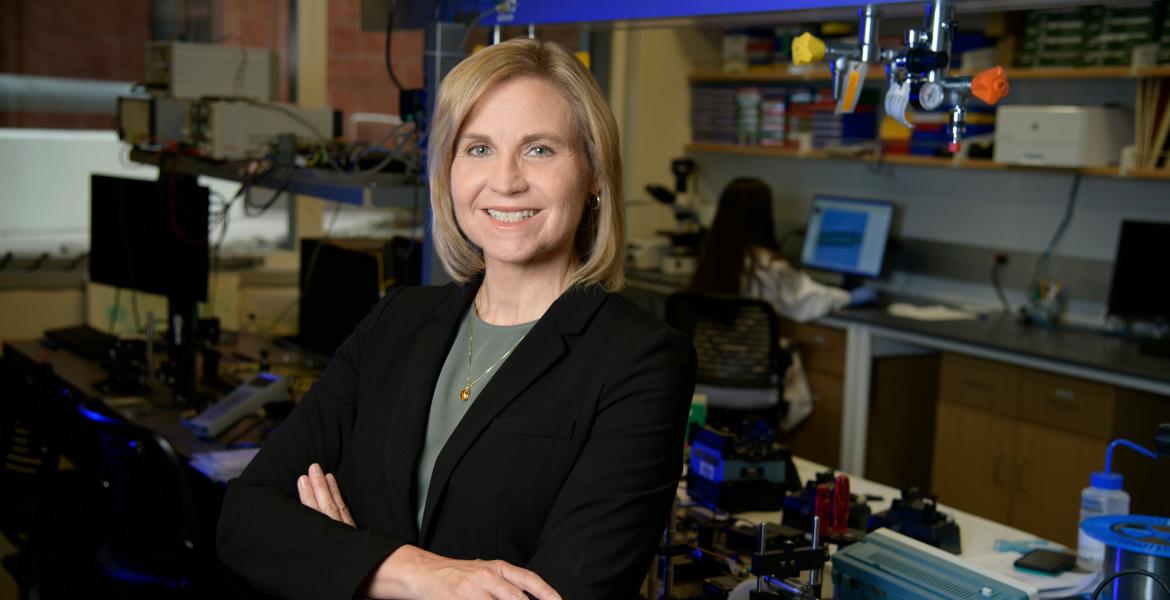Biomedical engineer and UA BIO5 Institute director joins national bioengineering advisory council.

Jennifer Barton, director of the University of Arizona BIO5 Institute and professor of biomedical engineering, has been appointed to the National Advisory Council for Biomedical Imaging and Bioengineering, part of the National Institutes of Health. (Image: University of Arizona)
Jennifer Barton, University of Arizona professor of biomedical engineering and director of the BIO5 Institute, has been appointed to the National Advisory Council for Biomedical Imaging and Bioengineering, part of the National Institutes of Health. The council advises the leadership of the National Institute of Biomedical Imaging and Bioengineering, or NIBIB, on policies and priorities related to research, training and health information dissemination in the areas of biomedical imaging and engineering.
“I was a new assistant professor when the National Institute of Biomedical Imaging and Bioengineering was created in 2000,” Barton said. “The formation of this institute, which is the only one in the National Institutes of Health to be focused on developing and applying biomedical technologies, felt like a validation of my field of biomedical engineering.”
In turn, Barton’s contributions to biomedical engineering, and to the mission of NIBIB, have been invaluable. One of her specialties is developing miniature endoscopes that combine multiple optical imaging techniques, such as optical coherence tomography and fluorescence spectroscopy, to detect ovarian cancer in its earliest stages. She is the principal investigator in the UA’s Tissue Optics Laboratory and holds joint appointments in biosystems engineering, electrical and computer engineering, medical imaging, and optical sciences.
As director of the BIO5 Institute, Barton leads a collaboration among more than 20 colleges and departments across the UA to advance the pace of scientific discovery and tackle our world’s critical biological challenges.
“Jennifer’s guidance of the BIO5 Institute has helped create a world-class interdisciplinary program bridging five core disciplines to tackle complex problems,” said David W. Hahn, Craig M. Berge Dean of the College of Engineering. “This appointment reflects Jennifer’s national recognition as a thought leader and an innovator in biomedical engineering.”
NIBIB is a critical partner to the UA as a funder of Barton’s bioimaging research. The organization also supported an undergraduate design training program, directed by Barton, that helped launch the UA Department of Biomedical Engineering in 2010.
“NIBIB is a perfect match for my own research developing miniature endoscopes containing advanced optical imaging technologies,” Barton said. “I’m proud to be appointed to the council, to have the chance to serve my scholarly community, and to provide advice to help keep NIBIB at the cutting edge of biomedical technology.”
